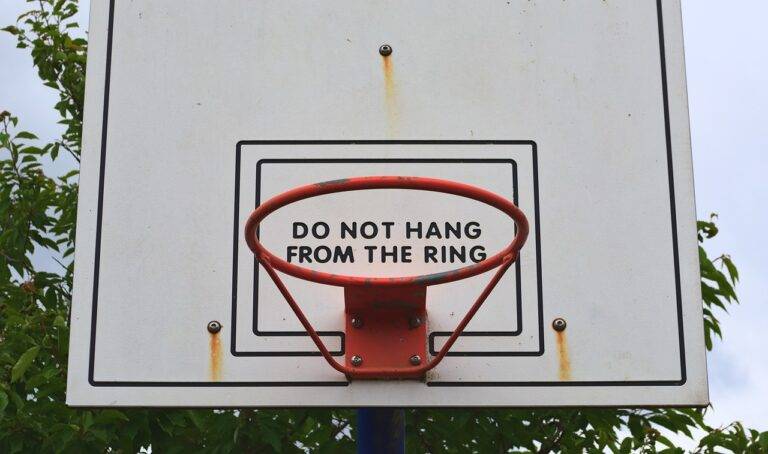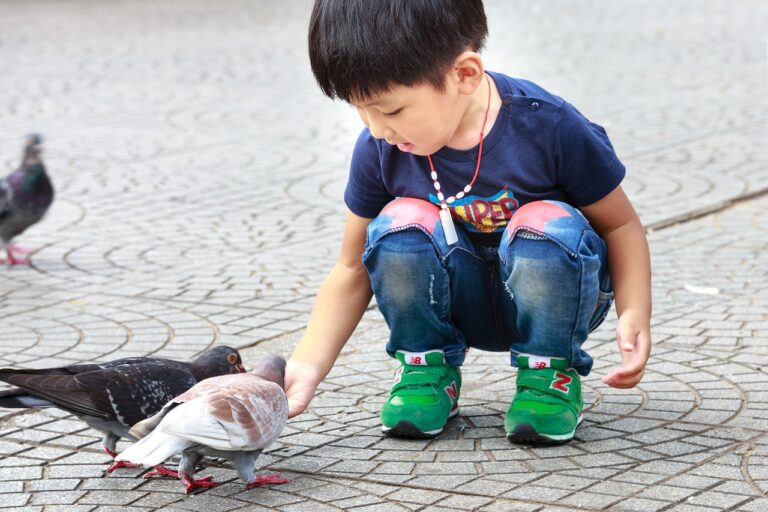Adventure Travel Solo Travel Safety: Strategies for Staying Safe While Alone on the Road
Solo travel can be an exhilarating and fulfilling experience that allows individuals to explore the world on their terms. However, it also comes with its own set of risks that should not be underestimated. Being alone in unfamiliar places can make travelers more vulnerable to various dangers, such as theft, scams, or even physical harm. Understanding these risks is crucial for ensuring a safe and enjoyable journey.
One of the primary risks of solo travel is the lack of a safety net. Without companions to watch your back or help in tricky situations, solo travelers must rely solely on their own judgment and resources. This independence can be empowering, but it also means that any misstep or unfortunate encounter falls entirely on the individual. By recognizing and preparing for the potential risks of solo travel, you can take proactive steps to mitigate them and enhance your overall safety while on the road.
Researching Your Destination Before You Go
Before embarking on a solo travel adventure, it is crucial to thoroughly research your destination. Understanding the local customs, culture, and any safety concerns will help you navigate your travels more confidently. Take the time to familiarize yourself with the local language or basic phrases, as this can greatly enhance your experience and enable better communication with locals.
Researching the political climate, weather conditions, and any travel advisories for your destination is essential for a smooth and safe trip. Knowing what to expect can help you pack appropriately and plan your itinerary with potential challenges in mind. Additionally, researching the local transportation options, popular tourist scams to watch out for, and emergency contact information can empower you to make informed decisions while exploring a new place.
Packing Smart for Safety
When packing for a solo trip, it’s important to prioritize safety without sacrificing essential items. Start by organizing your belongings in a secure and efficient manner to minimize the risk of losing important items or having to fumble through your bag in unfamiliar surroundings. Consider investing in a sturdy and reliable lock for your luggage to deter theft and keep your belongings protected at all times. Additionally, pack a small first aid kit with basic supplies such as bandages, pain relievers, and any necessary medications in case of emergencies.
Choose clothing that is versatile, comfortable, and appropriate for the destination’s cultural norms to avoid standing out as a target for theft or unwanted attention. Opt for neutral colors and avoid wearing flashy jewelry that may attract unwanted attention from strangers. It’s also wise to pack a portable charger for your electronic devices and store them in a separate compartment of your bag to prevent theft or damage. By packing smart for safety, you can enjoy your solo travels with peace of mind knowing that you are well-prepared for any situation that may arise.
Staying Aware of Your Surroundings
When traveling solo, it’s crucial to stay vigilant and aware of your surroundings at all times. Be conscious of the people around you, trust your instincts, and avoid potentially risky situations. Familiarize yourself with the local customs and be respectful of the culture you are visiting. By staying alert and observant, you can better navigate unfamiliar environments and ensure your safety while traveling alone.
Whether you are exploring a bustling city or a remote countryside, always keep an eye on your surroundings. Pay attention to any potential dangers or suspicious activities, and have a plan in place for how to react if you feel threatened. Being proactive and staying aware of your environment can help you avoid unnecessary risks and enjoy a safe and fulfilling solo travel experience.
Trusting Your Instincts
When traveling solo, your instincts can be your best guide in unfamiliar situations. Pay attention to any feelings of unease or discomfort, as they often indicate potential risks. If something doesn’t feel right, it’s important to trust your gut and take necessary precautions to ensure your safety. Your intuition is a valuable tool that can help you navigate different environments and make informed decisions.
In unfamiliar surroundings, it’s crucial to stay vigilant and rely on your instincts to assess the safety of a situation. If you sense danger or feel uneasy about a person or place, don’t ignore these feelings. Trusting your instincts can help you avoid potentially risky scenarios and keep you out of harm’s way. Remember, it’s always better to be cautious and proactive rather than regretful later on.
Keeping Important Documents Secure
When traveling solo, it is crucial to keep your important documents secure at all times. Make sure to carry copies of your passport, ID, travel insurance, and any other essential paperwork with you. Store the originals in a secure location in your accommodation, such as a safe or locked luggage. Additionally, consider using a money belt or a concealed pouch to keep your documents close to your body while out exploring.
To further protect your important documents, consider scanning and emailing yourself digital copies. This way, you can access them online in case of an emergency or if your physical documents get lost or stolen. Be mindful of where you keep your belongings, especially in crowded areas or public transportation. By taking these simple precautions, you can help ensure the safety and security of your important documents while traveling solo.
Communicating Regularly with Loved Ones
When traveling solo, it’s crucial to maintain regular communication with loved ones back home. Keeping them informed of your itinerary, accommodations, and any changes to your plans can provide a sense of security for both you and them. Utilize messaging apps, social media updates, or regular check-in calls to share your whereabouts and well-being. In case of any emergencies, having a network of people aware of your travels can expedite help reaching you quickly.
Additionally, establishing a routine for communication can offer peace of mind to those who care about your safety. Setting specific check-in times or frequency of updates can reassure your loved ones that you are safe and sound. Consider sharing important contact information with them, such as local emergency services or your accommodations, so they can assist you in case of any unforeseen circumstances. Effective communication can be a lifeline in times of need and can help you stay connected with your support system while exploring new destinations.
Choosing Safe Accommodations
When traveling solo, choosing safe accommodations is crucial for your overall well-being. Look for reputable hotels or guesthouses that have good reviews from previous guests. Opt for accommodations located in safe neighborhoods or areas with easy access to transportation and amenities to enhance your comfort and convenience during your stay.
Additionally, consider booking accommodations that offer extra security measures such as 24-hour front desk service, secure locks on doors and windows, and well-lit entrances. It’s also a good idea to inform the staff of your solo traveler status so they can provide any additional support or guidance you may need during your stay. By prioritizing your safety when selecting accommodations, you can enjoy your solo travels with peace of mind.
Avoiding Risky Situations
While traveling solo, it’s crucial to avoid putting yourself in risky situations to ensure your safety. One way to do this is by being cautious when interacting with strangers, especially in unfamiliar environments. Trust your instincts and err on the side of caution if a situation feels uncomfortable or unsafe. Additionally, avoid traveling alone at night and stick to well-lit, populated areas to minimize the risk of encountering potential dangers.
Another important aspect of avoiding risky situations is to stay vigilant and aware of your surroundings at all times. Keep an eye out for any suspicious activities or individuals, and be proactive in removing yourself from any potentially risky scenarios. By staying alert and attentive, you can better protect yourself and reduce the likelihood of putting yourself in harm’s way while traveling solo.
Heading 10: Seeking Help When Needed
If you find yourself in a situation where you feel unsafe or unsure during your solo travels, it’s crucial to seek help promptly. Don’t hesitate to reach out to local authorities, your country’s embassy or consulate, or even fellow travelers for assistance. Whether you’re facing a medical emergency, encountering harassment, or simply feeling lost, speaking up and asking for help can make a significant difference in ensuring your well-being.
Remember that seeking help is not a sign of weakness but a proactive step towards safeguarding yourself while on the road. It’s essential to have emergency contact numbers saved in your phone, carry a list of important addresses, and know the location of nearby hospitals or police stations. By taking the initiative to seek assistance when needed, you are prioritizing your safety and ensuring that you can navigate challenging situations effectively while traveling alone.
When should I seek help while traveling solo?
It is important to seek help whenever you feel unsafe, uncomfortable, or in need of assistance. Trust your instincts and don’t hesitate to ask for help when needed.
How can I identify when I need help while traveling alone?
If you find yourself in a dangerous situation, feeling lost or confused, or facing any kind of emergency, it is important to seek help immediately.
Who should I reach out to for help while traveling solo?
You can reach out to local authorities, embassy or consulate officials, hotel staff, fellow travelers, or emergency hotlines for assistance when needed.
What should I do if I encounter a problem while traveling alone?
Stay calm, assess the situation, and seek help from the appropriate authorities or individuals. It is important to address any issues promptly and not attempt to handle them on your own if it puts your safety at risk.
Is it okay to ask for help from strangers while traveling alone?
While it is important to be cautious when seeking help from strangers, there are times when it may be necessary for your safety. Trust your instincts and use your best judgment when deciding who to ask for help.







